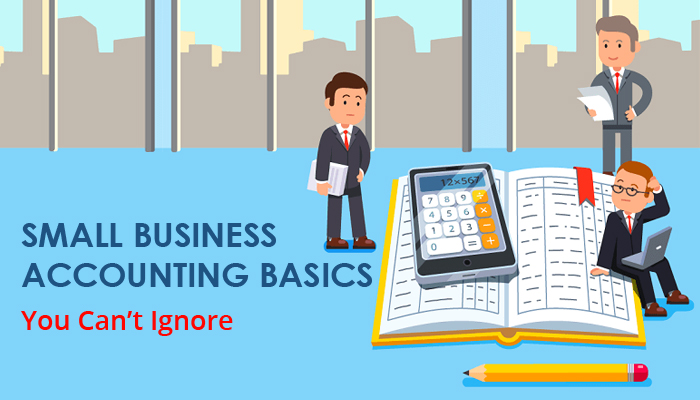Have you consider opening account for your business? Having a successful business revolves around good management and discipline. For security and safe keep, there is no better option on how to handle your money than keeping it in the bank. Some people result to using piggy banks, but what happens in the case of a fire outbreak and natural disaster?
What would you save first? Your piggy bank or a life? My guess is as good as yours. Besides it is easier to spend funds you can see than the one deposited for safe keep. This brings us to owning a bank account. You can either own a personal account or a business account. Because, this is a business page, we are focusing on business accounts.
One of the most important things you can do when starting a company is Opening a business bank account. A business bank account plays an important role in growing your business, providing a simpler and more professional way to run your business.
When you are in a business, it is important to maintain a good image as much as possible matters. Writing checks out of a personal account, it does not convey strength, professionalism or confidence with customers and clients. Most people would even assume your business is few days old.
By owning one, you are protecting your business and yourself at the same time. In the case of being sued for any damages related to your business conduct or your products, your personal assets, such as your home and retirement savings are targeted. To run a successful business, you need to separate your personal accounts from your business account, just like separating personal from business life to avoid sentiments.
It is safer and more efficient to use a business account for your business expenses (profits and capitals) than to go through your own personal account. You could wondering, what type of businesses should own a business account?
Small business owners usually have to start from owning a personal account and are legally not required to open business accounts. but as time goes on and they move up the business ladder can later swap to a business account to make it professional and indicate to potential clients that you are serious and are opened for business.
When you are just starting, it might make sense to run all business transactions through a personal account. But as your business begins to grow and expand, where you have more work and more employees, you will need to have an account dedicated specifically to your business.
You will definitely know when it is time to reach the decision, especially where the number of business transactions is greater than the amount of personal transactions. A business bank account is a pre-requisite for obtaining business loans.
Business owners like the partnerships and registered companies usually have to open this type of account to avoid fraudulent activities. The Banks often offer incentives for small businesses by offering reduced or no fees for a length of time, or other small bonuses.
You will need to open a business bank account as soon as your business has an Employer Identification Number (EIN) or starts to accept or spend money. The Internal Revenue Service (IRS) usually requires that any incorporated business must have a business bank account.
This rule applies to a partnership, sole partnership, corporation, or a limited liability company (LLC). It is always better to open your business bank account as part of an early formation of your LLC. It is a critical part of protecting your liability and managing your company’s cash flow.
Here are some advantages of opening a business account:
- Opening a business account can help you separate business and personal expenses, allowing you to effectively track your business cash flow.
- With business bank accounts, you can easily keep track of all your expenses, manage your employees’ salary, receive and deposit payments, convey finances to investors, and plan your business budget more accurately.
- You will have a better way of managing all your budgets with a clear overview of your spending and expenses duly recorded.
- You can collect receipts in the account, as well as write checks for expenses which could be recorded for future reference.
- Customers will be able to pay you with credit cards (which will send funds directly to your business account) and make check payment to your business instead of directly to you. You cannot even accept credit cards through a personal bank account. It can only happen with a commercial account. It is more professional this way. It makes it easier to manage your financials and protect your personal assets in case of a lawsuit. You need it to accept credit card payments for merchandise or services. Credit card accounts can help your business make large purchases and help establish a credit history for your business. Mixing personal and business accounts can affect your individual credit. With a separate business bank account, you will be having a separate credit history.
- It will help you differentiate who paid you and for what.
- You are able to keep track of business expenses, simplify tax reporting, and deposit payments under company’s name. By separating your personal and business bank accounts, you are able to manage and organize what is necessary for taxes and deductions at the end of the year. You will also have a clear audit trail.
- Business banking usually have more advantage in obtaining business loans in the event of an emergency. You may even have need for larger and longer-term business loans to expand the size of your business, invest in new products or buy equipment. There will definitely be a need to borrow a larger amount of money.
- You get a Clean Financial record. A business bank account alleviates problems that are caused by mixing your business and personal finances.
- Most lenders will not approve your business loans unless the funds can be deposited into a business bank account due to the increase amount of fraudulent activities increasing by the day. This will help you get protection from liabilities in the event of a lawsuit against your business.
- It could be a differentiator between a business from a hobby especially by the government.
- Banks provide financial services like wealth management, currency exchange, and safe deposit boxes.
With some operators, you can sign up for an account which could take a few minutes and typically it could also take 2-5 working days for your business account to be verified. A UK bank account application approval so you could factor that time into planning your business well. Residents and non-residents of UK can open a business account following the necessary process.

Business accounts for non UK residents
All over the world, foreigners are establishing companies depending on the location that best suits their business. This is the same with UK. They may also want to have a business account which is very possible even without the necessary ID documentations, as long as the criteria for opening it is complete.
Most banks have shown flexibility when it comes to the documents they will accept as proof of address. With the account, most businesses can activate their international account details for free, converting and holding over 45 money currencies within the one central platform.
Currencies could be converted at the mid-market exchange rate which is cheaper than bank on international payment fees. There is usually no minimum deposits required, they offer a cheaper and easier alternative for businesses with international banking needs.
The only fees you will need to pay or on small, upfront fee on the value of each transfers. For those businesses operating internationally or which are based overseas who are wishing to gain quick and easy access to UK banking details without the need for a corresponding overseas address, the Transfer Wise Borderless account is a very good option.
Types of Businesses and application requirements for business accounts
Opening a business bank account in the UK is very straightforward as long as you comply with all of the criteria. The requirement for different banks could vary. Some banks require a face-to-face meeting with you or at least one of your company representative’s in the UK to sign a bank mandate before granting access to a business account.
You will be required to provide the documents listed above, and to provide photographic identification and proof of address for all directors and any substantial shareholders. The following documents will be required:
- Proof of ID (All named company directors). This can be a passport, national identity card or even photo driving license.
- Proof of address which is usually indicated on a utility bill, council tax statement or recent bank statement.
- Introductory Offers.
- Transaction Fees (some business bank accounts charge transaction fees as for depositing checks)
In some cases, you will need to prove your very own personal financial situation, with documents to prove that your credit is clean and bank history is intact.

The following details of your company will be required:
- Full business address (including postcode)
- Contact details
- Companies House registration number (for limited companies and partnerships)
- Estimated annual turnover
But there are some cases where depending on the type of business you run, you need specific requirements.
There are different application requirements for different types of businesses such as:
- Limited Liability Company (LLC) account requires Employer Identification Number (EIN), Mailing Address, Business Address, Certificate of assumed name or DBA, Registered Agent, Personal identification, Business license and business permit(s), LLC operating agreement, Articles of organization and Monthly credit card revenue for merchant accounts
- Corporations account requires Corporate bylaws, Articles of incorporation,, Employer Identification Number (EIN), Business Address, Mailing Address, Registered Agent, Personal identification, Business license or business permit(s), Certificate of assumed name or DBA and Monthly credit card revenue for merchant accounts.
- Partnerships accounts requires Employer Identification Number (EIN), Partnership agreement, Mailing Address, Personal identification, Business Address, Business license or business permit(s), Certificate of assumed name or DBA, Organizing document filed with the state and Monthly credit card revenue for merchants account.
- Sole Proprietorship account requires the Business Address, Mailing Address, certificate of assumed name or DBA, Business license with the name of the business and the owner name(s), Monthly credit card revenue for merchants account, Personal identification, Social Security Number (SSN) and Employer Identification Number (EIN).
Choosing the right kind of banking service is very important. It is more advisable to start by researching the options online. In a case where your business has an overseas corporate identity, it is possible your home bank may be able to set up an account for you if it has a correspondent banking relationship with a British bank.
Most major banks in the UK also have ‘international’ accounts. You can even apply for an international account online. You can also opt for the easy and free borderless account from TransferWise. While you cannot open a business bank account online for the majority of the major banks, your initial application can be made on your selected bank’s website. This is why before choosing any of these banks regardless of their efficiency, you must make proper research for the good of your business.
There are different types of retail bank accounts available in the UK, including the top four street banks Barclays, HSBC, NatWest and Lloyds. It may also be worth considering newer-established banks such as Metro Bank or Starling Bank, or alternative international money transfer companies like the TransferWise.

In the case of selling the company
When the business is sold, the bank account will have to transfer all access to the new owners with the necessary documentation of all financial records. They often want to go into proper investigations which is very similar to an audit to avoid taking up previous debts.
The person or group of persons buying your business will want to see a history of financial transactions, inspect your financial statements, review of bank statements for the past several years (bank statements are more reliable because they are issued by the bank, and represent a form of third-party verification of hard numbers). Owning a business account can enable you to release the bank statements to a prospective buyer, without having to be concerned yourself about disclosing personal information.
Choosing the right business bank account can help make your business more legitimate. It might be inconvenient to maintain a separate account for both your personal and business activities, it is the best practice for your business.
